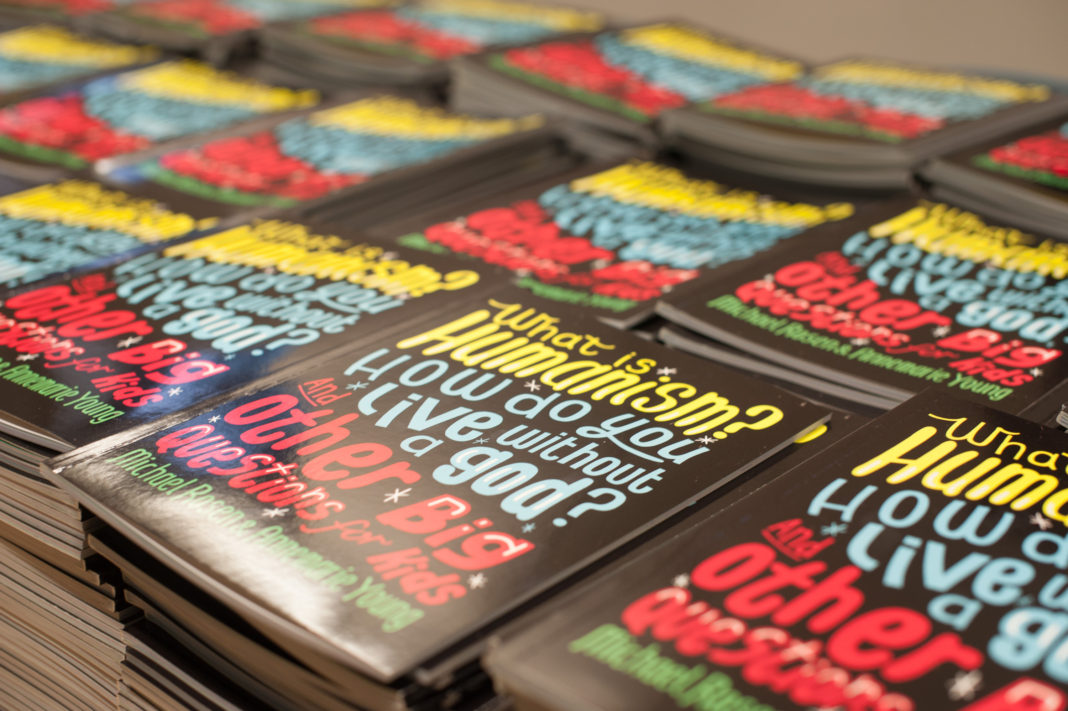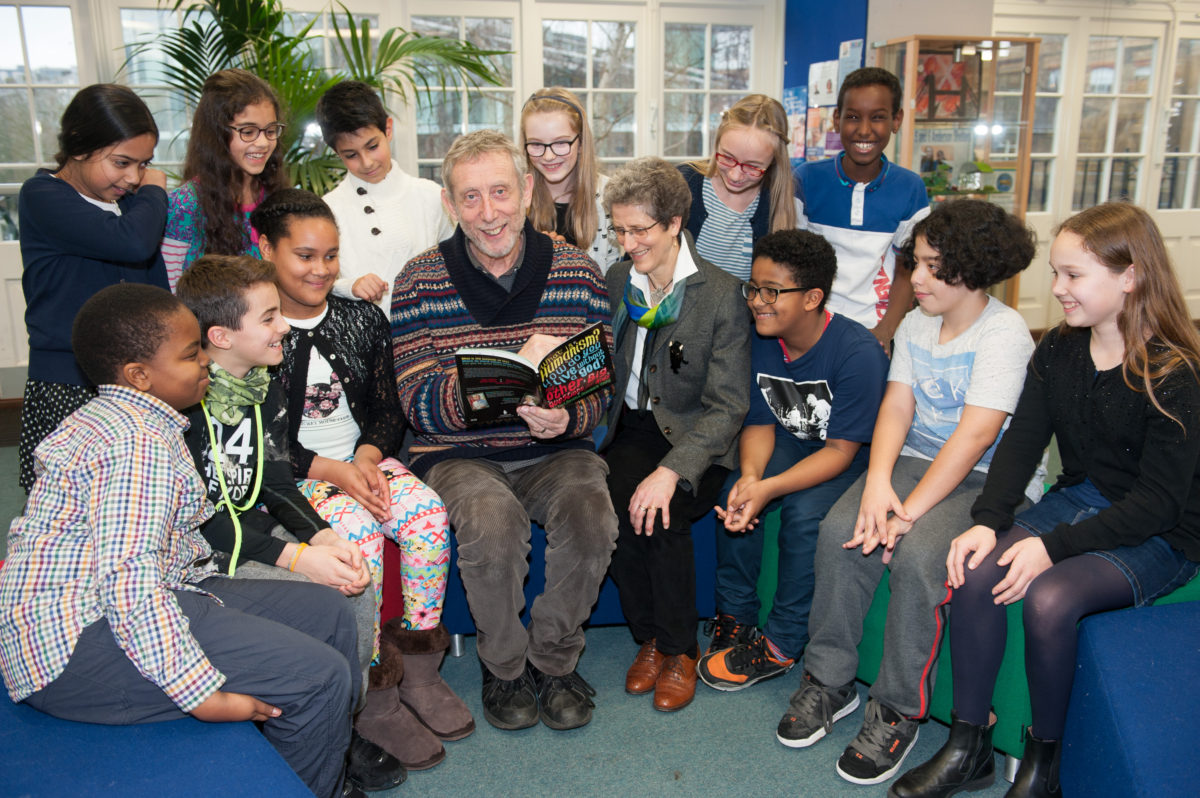
This week, schools across the United Kingdom will be receiving free copies of Michael Rosen and Annemarie Young’s children’s book What is Humanism? courtesy of the British Humanist Association (BHA), following a successful crowdfunding campaign.
What is Humanism? is the first of its kind: a nonfiction book for upper primary and lower secondary pupils which explores humanist views of morality and ethics, the origins of life, and the relationship between religion and the state. It is intended for use in the classroom or at home to help children from all backgrounds better understand the mainstream non-religious values shared by record numbers of people in the UK today.
This is the first time the BHA has distributed a book to primary schools, and for many schools, it will be the first book about non-religious worldviews in their libraries.
The book features special content provided by authors Stephen Fry, Natalie Haynes, and Philip Pullman, who are all patrons of the BHA, as well from the BHA’s Vice President, physicist Jim Al-Khalili, and its President, the comedian and novelist Shappi Khorsandi, who share their outlook on life.
BHA Chief Executive Andrew Copson commented:
‘Thanks to generous donations from humanists across the UK, Michael and Annemarie’s groundbreaking new book will be available in classrooms and libraries throughout the country.
‘These days it’s more important than ever that children are able to learn about the different beliefs and perspectives they will encounter in modern Britain. It’s important that children have access to information about all the different religions and non-religious perspectives out there in the world today so they can make up their own minds about what they believe.’
Michael Rosen and Annemarie Young commented:
‘Millions of people in this country and all over the world work out their philosophy of life, and how to live, without referring to religion. Schools quite rightly spend a good deal of time and effort exploring the ideas and philosophies of the world’s great religions, but the ideas of humanism, secularism, and atheism are largely ignored. The mismatch between what is believed and what is taught is surely wrong. Our book aims at opening up a discussion about what humanism is, and how people live their lives as humanists. Throughout the book, readers are encouraged to ask questions, in order to help them think for themselves and thus to counter prejudice.’

A 2015 court judgment, Fox v Secretary of State for Education, clarified that all schools in the United Kingdom have a positive duty to teach about Humanism, the UK’s principal non-religious worldview, as part of Religious Education (RE) lessons.
The BHA hopes that the book will go towards helping teachers to fulfil their statutory obligation by supporting young people to discover how many people today live happy, ethical, and fulfilling lives without religion.
The book is available to request for free through the BHA’s education website, Understanding Humanism, which also provides free teaching resources about Humanism for children of all ages, along with trained and accredited humanist School Speakers who can help teachers to plan and deliver inclusive RE lessons.
Humanists are non-religious people whose values include looking to reason and science to gain an understanding of the world around them and relying on empathy to make moral choices. Recent surveys estimate that as many as one in five people in the UK share these values, and that half of the population claim no religion. This number rises to two in three for Britons under 35.
Notes
For press inquiries or to arrange an interview with one of the authors, please contact BHA Campaigns Manager Richy Thompson at richy@humanists.uk or on 020 3675 0959. For questions about obtaining a copy of the book, please email BHA Head of Education Luke Donnellan at luke@humanists.uk.
The British Humanist Association is the national charity working on behalf of non-religious people who seek to live ethical and fulfilling lives on the basis of reason and humanity. It promotes a secular state and equal treatment in law and policy of everyone, regardless of religion or belief.
Understanding Humanism is the BHA’s education service, which aims to introduce young people to Humanism as a non-religious approach to life which can be studied as an example of a ‘non-religious worldview’. It provides teachers with the resources necessary to teach accurate, high-quality lessons about Humanism, and assists them with the development of their own subject knowledge. The Understanding Humanism website offers lesson plans and activities, as well as free school speakers who can work with teachers to broaden students’ understanding. Visit Understanding Humanism at understandinghumanists.uk.
A 2016 BHA-commissioned YouGov poll asked British adults a series of questions about their beliefs about religion, ethics, morality, and reason. The results found that 22% of the population has a non-religious outlook on life that matches the humanist one, and 17% would self-define as humanist when this fact was pointed out to them.
